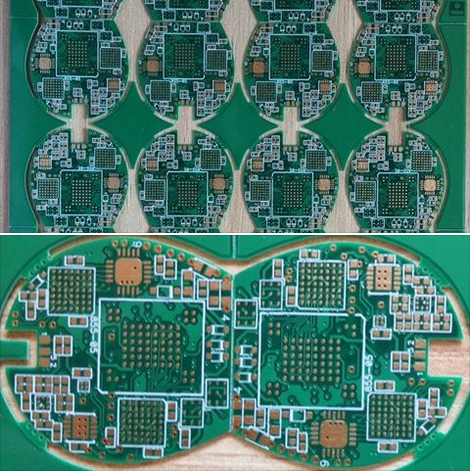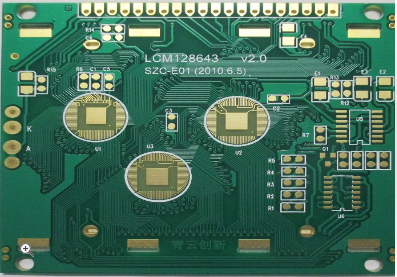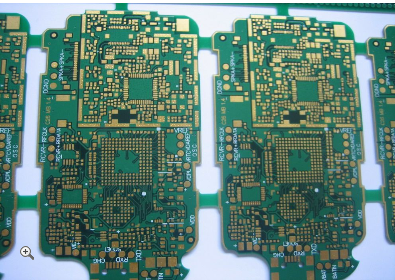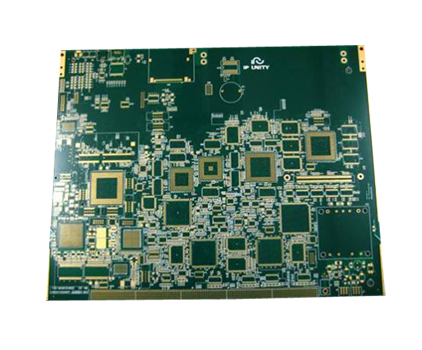-
 Agriculture
Agriculture
-
 Health-Care
Health-Care
-
 Environment
Environment
-
 Construction-Real-Estate
Construction-Real-Estate
-
 Tools-Hardware
Tools-Hardware
-
 Home-Garden
Home-Garden
-
 Furniture
Furniture
-
 Luggage-Bags-Cases
Luggage-Bags-Cases
-
 Medical-devices-Supplies
Medical-devices-Supplies
-
 Gifts-Crafts
Gifts-Crafts
-
 Sports-Entertainment
Sports-Entertainment
-
 Food-Beverage
Food-Beverage
-
 Vehicles-Transportation
Vehicles-Transportation
-
 Power-Transmission
Power-Transmission
-
 Material-Handling
Material-Handling
-
 Renewable-Energy
Renewable-Energy
-
 Safety
Safety
-
 Testing-Instrument-Equipment
Testing-Instrument-Equipment
-
 Construction-Building-Machinery
Construction-Building-Machinery
-
 Pet-Supplies
Pet-Supplies
-
 Personal-Care-Household-Cleaning
Personal-Care-Household-Cleaning
-
 Vehicle-Accessories-Electronics-Tools
Vehicle-Accessories-Electronics-Tools
-
 School-Office-Supplies
School-Office-Supplies
-
 Packaging-Printing
Packaging-Printing
-
 Mother-Kids-Toys
Mother-Kids-Toys
-
 Business-Services
Business-Services
-
 Commercial-Equipment-Machinery
Commercial-Equipment-Machinery
-
 Apparel-Accessories
Apparel-Accessories
-
 Security
Security
-
 Shoes-Accessories
Shoes-Accessories
-
 Vehicle-Parts-Accessories
Vehicle-Parts-Accessories
-
 Jewelry-Eyewear-Watches-Accessories
Jewelry-Eyewear-Watches-Accessories
-
 Lights-Lighting
Lights-Lighting
-
 Fabric-Textile-Raw-Material
Fabric-Textile-Raw-Material
-
 Fabrication-Services
Fabrication-Services
-
 Industrial-Machinery
Industrial-Machinery
-
 Consumer-Electronics
Consumer-Electronics
-
 Electrical-Equipment-Supplies
Electrical-Equipment-Supplies
-
 Electronic-Components-Accessories-Telecommunications
Electronic-Components-Accessories-Telecommunications
-
 Home-Appliances
Home-Appliances
-
 Beauty
Beauty
-
 Chemicals
Chemicals
-
 Rubber-Plastics
Rubber-Plastics
-
 Metals-Alloys
Metals-Alloys
- Masonry Materials
- Curtain Walls & Accessories
- Earthwork Products
- Fireproofing Materials
- Heat Insulation Materials
- Plastic Building Materials
- Building Boards
- Soundproofing Materials
- Timber
- Waterproofing Materials
- Balustrades & Handrails
- Bathroom & Kitchen
- Flooring & Accessories
- Tiles & Accessories
- Door, Window & Accessories
- Fireplaces & Stoves
- Floor Heating Systems & Parts
- Stairs & Stair Parts
- Ceilings
- Elevators & Escalators
- Stone
- Countertops, Vanity Tops & Table Tops
- Mosaics
- Metal Building Materials
- Multifunctional Materials
- Ladders & Scaffoldings
- Mouldings
- Corner Guards
- Decorative Films
- Formwork
- Building & Industrial Glass
- Other Construction & Real Estate
- Wallpapers/Wall panels
- HVAC System & Parts
- Outdoor Facilities
- Prefabricated Buildings
- Festive & Party Supplies
- Bathroom Products
- Household Sundries
- Rain Gear
- Garden Supplies
- Household Cleaning Tools & Accessories
- Lighters & Smoking Accessories
- Home Storage & Organization
- Household Scales
- Smart Home Improvement
- Home Textiles
- Kitchenware
- Drinkware & Accessories
- Dinnerware, Coffee & Wine
- Home Decor
- Golf
- Fitness & Body Building
- Amusement Park Facilities
- Billiards, Board Game,Coin Operated Games
- Musical Instruments
- Outdoor Affordable Luxury Sports
- Camping & Hiking
- Fishing
- Sports Safety&Rehabilitation
- Ball Sports Equipments
- Water Sports
- Winter Sports
- Luxury Travel Equipments
- Sports Shoes, Bags & Accessories
- Cycling
- Other Sports & Entertainment Products
- Artificial Grass&Sports Flooring&Sports Court Equipment
- Scooters
- Food Ingredients
- Honey & Honey Products
- Snacks
- Nuts & Kernels
- Seafood
- Plant & Animal Oil
- Beverages
- Fruit & Vegetable Products
- Frog & Escargot
- Bean Products
- Egg Products
- Dairy Products
- Seasonings & Condiments
- Canned Food
- Instant Food
- Baked Goods
- Other Food & Beverage
- Meat & Poultry
- Confectionery
- Grain Products
- Feminie Care
- Hair Care & Styling
- Body Care
- Hands & Feet Care
- Hygiene Products
- Men's Grooming
- Laundry Cleaning Supplies
- Travel Size & Gift Sets
- Room Deodorizers
- Other Personal Care Products
- Pest Control Products
- Special Household Cleaning
- Floor Cleaning
- Kitchen & Bathroom Cleaning
- Oral Care
- Bath Supplies
- Yellow Pages
- Correction Supplies
- Office Binding Supplies
- Office Cutting Supplies
- Board Erasers
- Office Adhesives & Tapes
- Education Supplies
- Pencil Cases & Bags
- Notebooks & Writing Pads
- File Folder Accessories
- Calendars
- Writing Accessories
- Commercial Office Supplies
- Pencil Sharpeners
- Pens
- Letter Pad/Paper
- Paper Envelopes
- Desk Organizers
- Pencils
- Markers & Highlighters
- Filing Products
- Art Supplies
- Easels
- Badge Holder & Accessories
- Office Paper
- Printer Supplies
- Book Covers
- Other Office & School Supplies
- Stationery Set
- Boards
- Clipboards
- Stamps
- Drafting Supplies
- Stencils
- Electronic Dictionary
- Books
- Map
- Magazines
- Calculators
- Baby & Toddler Toys
- Educational Toys
- Classic Toys
- Dress Up & Pretend Play
- Toy Vehicle
- Stuffed Animals & Plush Toys
- Outdoor Toys & Structures
- Balloons & Accessories
- Baby Food
- Children's Clothing
- Baby Supplies & Products
- Maternity Clothes
- Kids Shoes
- Baby Care
- Novelty & Gag Toys
- Dolls & Accessories
- Puzzle & Games
- Blocks & Model Building Toys
- Toddler Clothing
- Baby Clothing
- Kids' Luggage & Bags
- Arts, Crafts & DIY Toys
- Action & Toy Figures
- Baby Appliances
- Hobbies & Models
- Remote Control Toys
- Promotional Toys
- Pregnancy & Maternity
- Hygiene Products
- Kid's Textile&Bedding
- Novelty & Special Use
- Toy Weapons
- Baby Gifts
- Baby Storage & Organization
- Auto Drive Systems
- ATV/UTV Parts & Accessories
- Marine Parts & Accessories
- Other Auto Parts
- Trailer Parts & Accessories
- Auto Transmission Systems
- Train Parts & Accessories
- Universal Parts
- Railway Parts & Accessories
- Auto Brake Systems
- Aviation Parts & Accessories
- Truck Parts & Accessories
- Auto Suspension Systems
- Auto Lighting Systems
- New Energy Vehicle Parts & Accessories
- Auto Steering Systems
- Wheels, Tires & Accessories
- Bus Parts & Accessories
- Auto Performance Parts
- Cooling System
- Go-Kart & Kart Racer Parts & Accessories
- Air Conditioning Systems
- Heavy Duty Vehicle Parts & Accessories
- Auto Electrical Systems
- Auto Body Systems
- Auto Engine Systems
- Container Parts & Accessories
- Motorcycle Parts & Accessories
- Refrigeration & Heat Exchange Equipment
- Machine Tool Equipment
- Food & Beverage Machinery
- Agricultural Machinery & Equipment
- Apparel & Textile Machinery
- Chemical Machinery
- Packaging Machines
- Paper Production Machinery
- Plastic & Rubber Processing Machinery
- Industrial Robots
- Electronic Products Machinery
- Metal & Metallurgy Machinery
- Woodworking Machinery
- Home Product Manufacturing Machinery
- Machinery Accessories
- Environmental Machinery
- Machinery Service
- Electrical Equipment Manufacturing Machinery
- Industrial Compressors & Parts
- Tobacco & Cigarette Machinery
- Production Line
- Used Industrial Machinery
- Electronics Production Machinery
- Other Machinery & Industrial Equipment
- Camera, Photo & Accessories
- Portable Audio, Video & Accessories
- Television, Home Audio, Video & Accessories
- Video Games & Accessories
- Mobile Phone & Accessories
- Electronic Publications
- Earphone & Headphone & Accessories
- Speakers & Accessories
- Smart Electronics
- TV Receivers & Accessories
- Mobile Phone & Computer Repair Parts
- Chargers, Batteries & Power Supplies
- Used Electronics
- VR, AR, MR Hardware & Software
- Projectors & Presentation Equipments
- Other Consumer Electronics
- Cables & Commonly Used Accessories
- Computer Hardware & Software
- Displays, Signage and Optoelectronics
- Discrete Semiconductors
- Wireless & IoT Module and Products
- Telecommunications
- Connectors, Terminals & Accessories
- Development Boards, Electronic Modules and Kits
- Circuit Protection
- Sensors
- Isolators
- Audio Components and Products
- Integrated Circuits
- Power Supplies
- Relays
- RF, Microwave and RFID
- Electronic Accessories & Supplies
- Passive Components
- PCB & PCBA
- Air Quality Appliances
- Home Appliance Parts
- Heating & Cooling Appliances
- Small Kitchen Appliances
- Laundry Appliances
- Water Heaters
- Water Treatment Appliances
- Refrigerators & Freezers
- Personal Care & Beauty Appliances
- Major Kitchen Appliances
- Cleaning Appliances
- Second-hand Appliances
- Smart Home Appliances
- Other Home Appliances
- Energy Chemicals
- Inorganic Chemicals
- Basic Organic Chemicals
- Agrochemicals
- Admixture & Additives
- Catalysts & Chemical Auxiliary Agents
- Pigments & Dyestuff
- Coating & Paint
- Daily Chemicals
- Polymer
- Organic Intermediate
- Adhesives & Sealants
- Chemical Waste
- Biological Chemical Products
- Surface Treatment Chemicals
- Painting & Coating
- Chemical Reagents
- Flavor & Fragrance
- Non-Explosive Demolition Agents
- Other Chemicals
- Custom Chemical Services
High Tg PCB Multilayer Superior Durability
Enhanced Thermal Stability
The most significant advantage of High Tg PCBs lies in their superior thermal stability. The glass transition temperature (Tg) represents the temperature at which a polymer transitions from a hard, glassy state to a more rubbery or viscous state. Standard PCBs often have Tg values around 130°C, making them susceptible to warping, delamination, and other forms of damage at elevated temperatures. High Tg PCBs, however, boast Tg values significantly higher – typically ranging from 150°C to over 200°C, depending on the resin system used. This elevated Tg allows them to maintain their structural integrity and dimensional stability under extreme temperature fluctuations, a critical factor in applications like automotive electronics, aerospace components, and industrial control systems where high temperatures are commonplace.
This enhanced thermal stability directly translates to improved reliability. Components mounted on a high Tg PCB are less likely to suffer from solder joint fatigue or cracking due to thermal expansion mismatches. The PCB's ability to withstand repeated thermal cycles without degrading ensures a longer lifespan for the entire electronic assembly. The consistent performance under thermal stress makes these PCBs ideal for demanding applications where consistent functionality is paramount.
Improved Chemical Resistance
Beyond thermal stability, high Tg PCBs often exhibit enhanced chemical resistance. The higher Tg resins used in their construction typically possess improved resistance to a broader range of solvents, chemicals, and other potentially corrosive substances. This characteristic is particularly important in applications where PCBs might be exposed to harsh environments or come into contact with various cleaning agents or chemicals during manufacturing or operation. The enhanced chemical resistance minimizes the risk of PCB degradation and ensures the longevity of the electronic assembly.
This improved resistance extends to moisture absorption as well. High Tg resins generally exhibit lower moisture absorption rates compared to standard Tg resins. Reduced moisture absorption helps prevent problems such as delamination, corrosion of internal layers, and variations in electrical performance, which are common issues with PCBs exposed to humid environments. This contributes to the overall robustness and reliability of the high Tg multilayer PCB.
Superior Mechanical Strength
High Tg PCBs often exhibit greater mechanical strength and rigidity compared to their standard Tg counterparts. This improved mechanical strength stems from the inherent properties of the high Tg resins, which provide increased stiffness and resistance to bending and flexing. This is crucial in applications where the PCB might be subjected to physical stress, such as vibration or impact, common in automotive, industrial, and aerospace settings. The higher strength reduces the risk of cracking or fracturing, maintaining the integrity of the PCB and its mounted components.
The increased rigidity also contributes to improved dimensional stability. High Tg PCBs are less prone to warping or deformation under pressure or during the soldering process, ensuring accurate component placement and minimizing the risk of shorts or open circuits. This precision is particularly important for high-density PCBs where component spacing is minimal.
Applications and Future Trends
The superior durability offered by High Tg PCB multilayer boards makes them ideal for various applications demanding robust and reliable performance. From automotive electronics and aerospace components to industrial control systems and high-reliability military equipment, these PCBs are rapidly becoming the preferred choice for engineers and manufacturers. The enhanced thermal stability, chemical resistance, and mechanical strength provide a significant advantage in these demanding environments.
Future trends point towards the continued growth and development of High Tg PCB technology. Research and development efforts focus on developing even higher Tg materials with improved properties and enhanced processing capabilities. This will further expand the application range of these PCBs and enable the creation of even more sophisticated and reliable electronic devices for a wide spectrum of industries.
REPORT































































































































































































































































































































































































































































































































































































